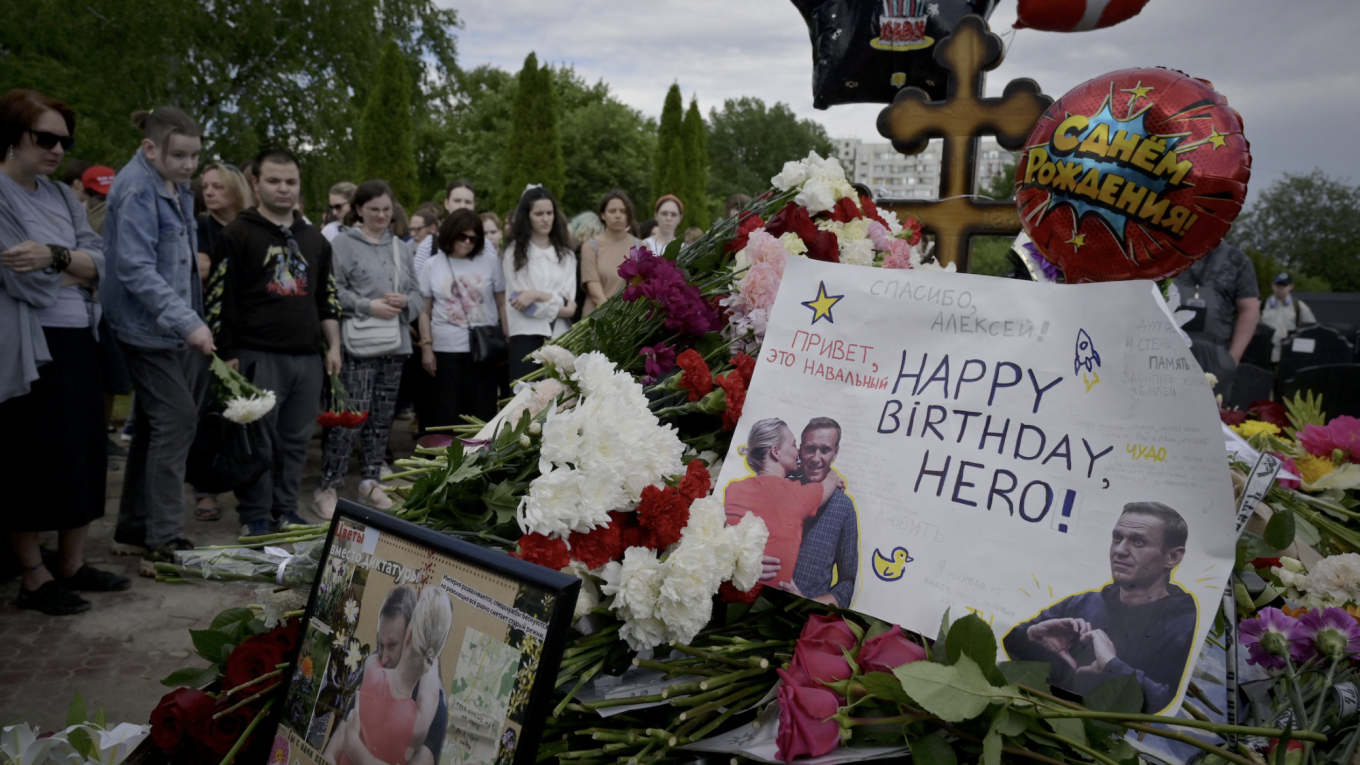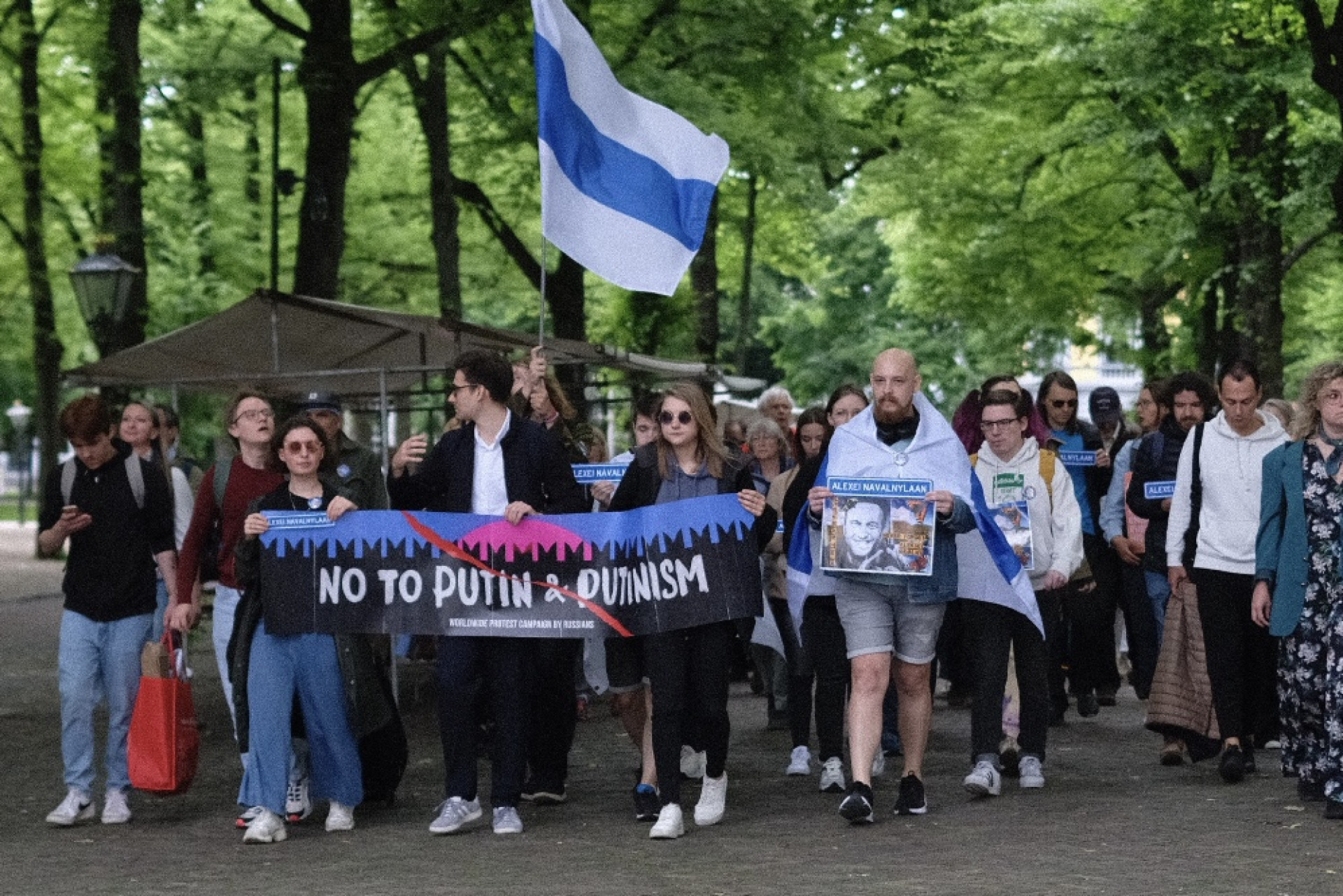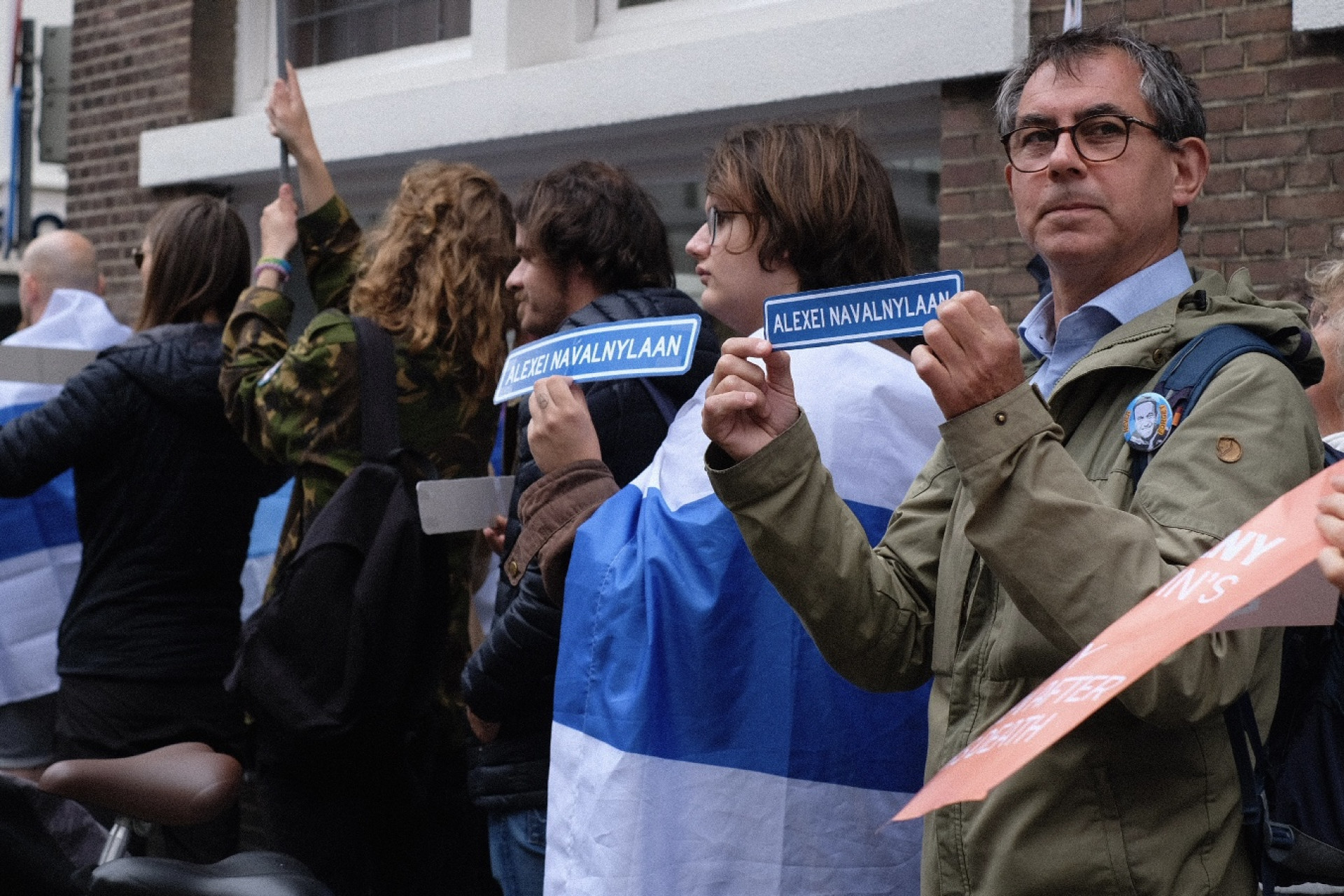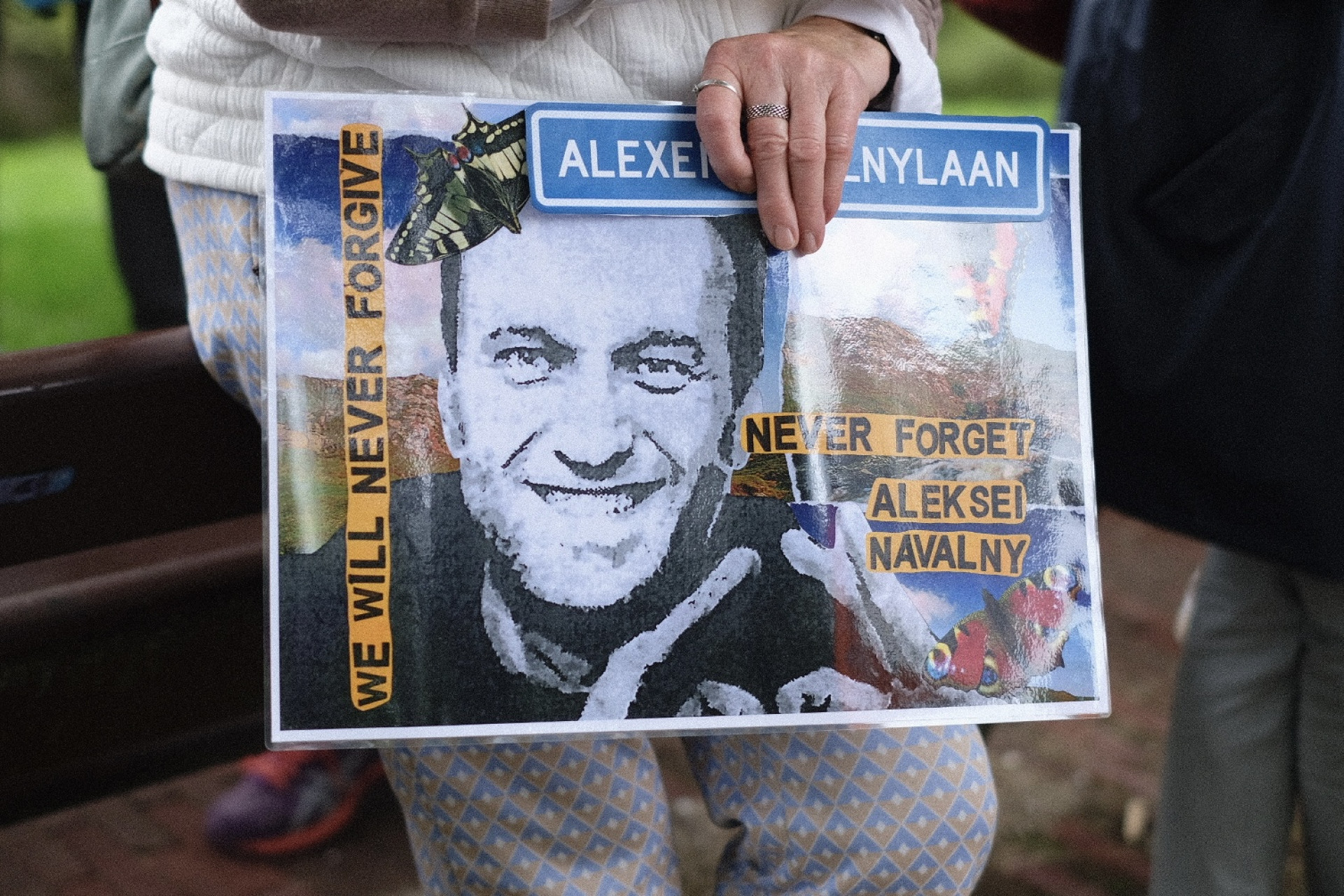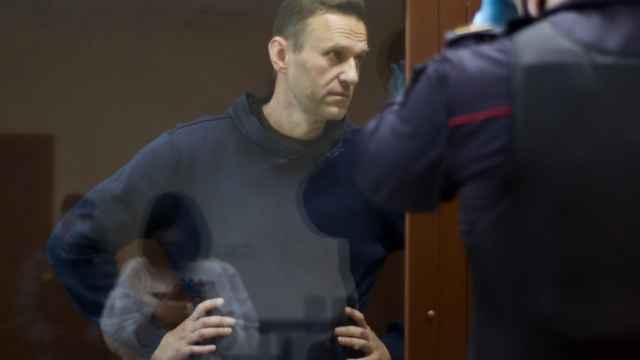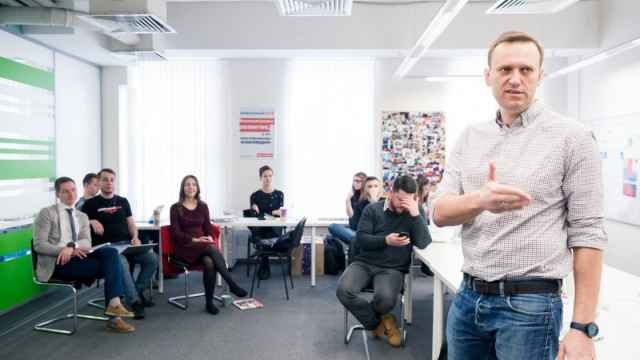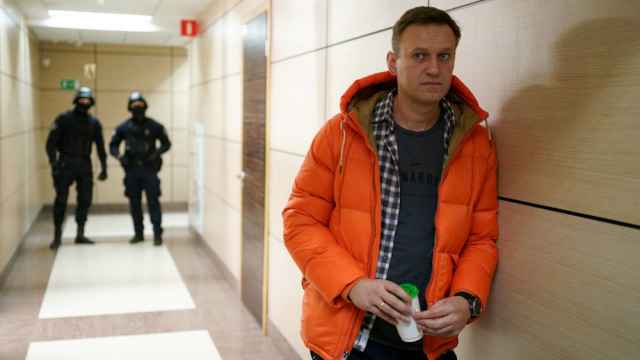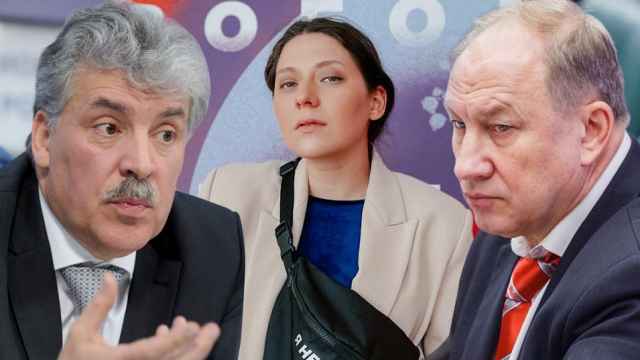THE HAGUE, Netherlands — Dozens of people gathered in front of the Russian Embassy in The Netherlands on Tuesday to commemorate late Kremlin critic Alexei Navalny on what would have been his 48th birthday.
“It's crucial that the name of Navalny continues to be spoken, as every mention ensures that his legacy lives on,” Vladimir Nechayev, the demonstration’s organizer and member of a local team of Navalny supporters, told The Moscow Times.
Navalny, a fierce opponent of President Vladimir Putin who galvanized mass opposition protests in Russia, died in February in an Arctic penal colony under unclear circumstances. His family and supporters blame the Kremlin for his death.
The rally in The Hague was one of several events held across Europe to mark his birthday.
Inside Russia, Navalny’s parents and supporters laid flowers at his grave in Moscow, while people laid flowers at monuments to victims of Soviet-era political repression in cities like St. Petersburg, Perm and Vladivostok.
His widow Yulia Navalnaya and several of his close allies attended a memorial service in Berlin, where his team also organized a concert to benefit political prisoners in Russia.
“I believe every time his name is mentioned, it bothers Putin, which makes it all the more important,” Nechayev said.
In The Hague, several dozen people protested in front of the Russian Embassy, holding signs reading ”Putin is a killer” and “We will never forgive” before they marched through the city.
“I was totally shocked by the developments in Ukraine and in Russia. Navalny took a big risk [by being an opposition politician] and he paid for it with his life,” Markus Wamsteeker, a Dutch citizen, told The Moscow Times at the protest.
“I felt I had to do something and showing up here is the least I can do.”
In the Polish capital Warsaw, about a dozen people gathered in front of the Russian Embassy located on a street named Victims of Russian Aggression Boulevard.
“Alexei and I were allies for a long time…he meant a lot for my personal political life and that of the country,” said the event’s organizer Yevgeny Domozhirov, a former regional opposition deputy and Navalny coordinator in the city of Vologda.
“Lyosha was dear to me as a friend, I knew him for 13 years and his murder was a huge personal loss for me,” said Domozhirov, who emigrated to Poland two years ago.
“There are not many days when we can remember him…This is very personal for me. I personally want to keep the memory of him [alive],” he added.
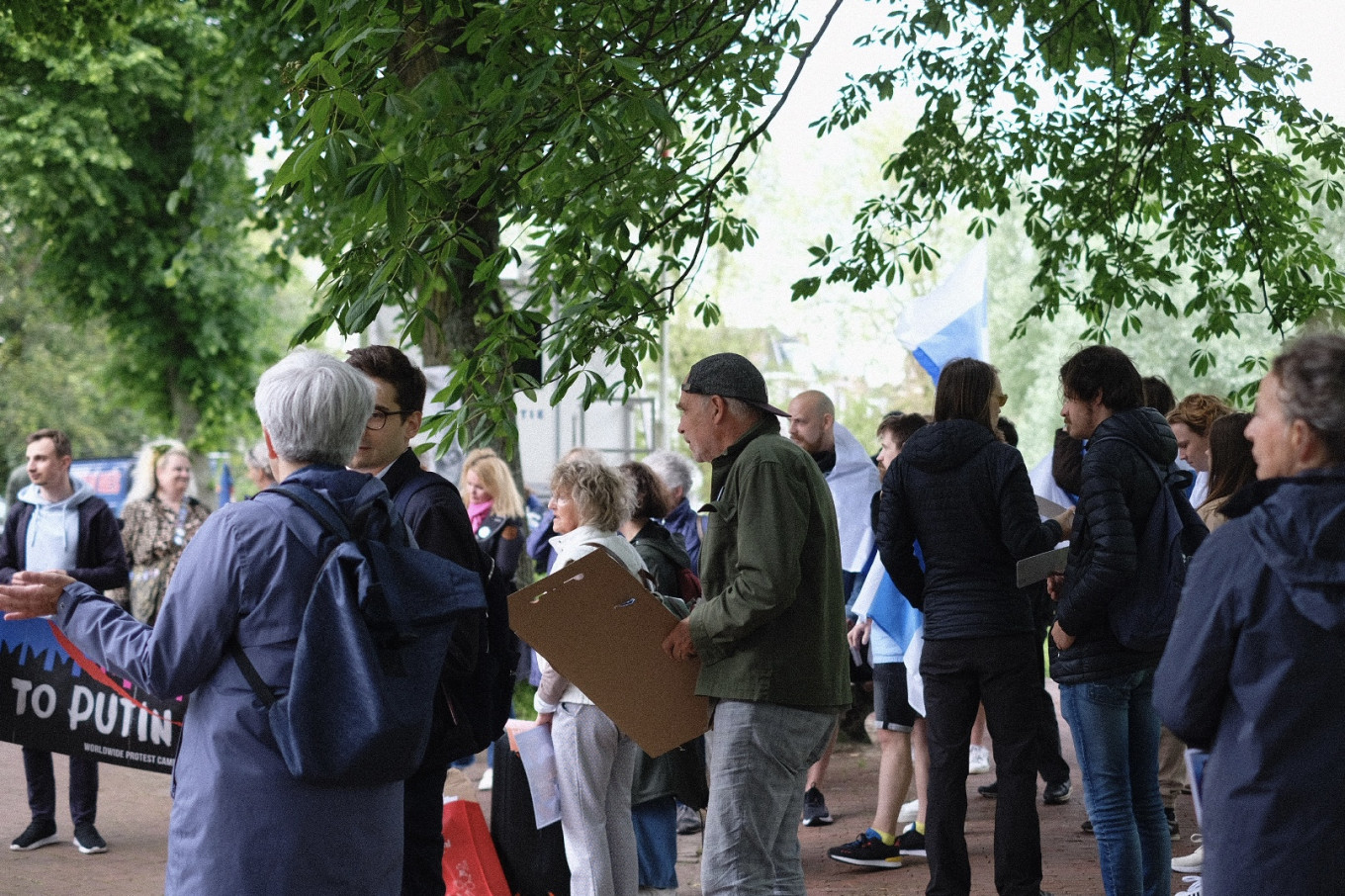
Protester David from Turkmenistan, who was holding a sign that read “The real terrorist is in the Kremlin,” said he came “to show solidarity with the free people of Russia.”
“We have the same enemy…in Belarus, in Russia, in Turkmenistan: a Chekist junta [that is in power],” David, 29, added, using the Soviet-era name for the secret services.
Events to commemorate Navalny were also held in front of the Russian Embassies in Riga, Latvia; Yerevan, Armenia; and Vilnius, Lithuania.
Demonstrators in The Hague called on local authorities to rename the street near the Russian Embassy after Navalny, with many holding up signs reading the proposed Dutch-language street name “Alexei Navalnylaan.”
A petition to rename the street has received more than 85,000 signatures since it was launched in February.
Dutch citizen Lissa Hollmann, who launched the petition, said she was driven by “her interest in world problems and politics” and Navalny's personality.
“I went there to [the Russian Embassy] to put some flowers and candles [to honor Navalny],” Hollmann told The Moscow Times ahead of Tuesday’s gathering.
“At that moment I realized that in Russia people weren't really allowed to do that. That they remove candles and flowers, that they detain some people — that was the moment that I thought they want to erase him. That the Kremlin wants us to forget his name,” she said.
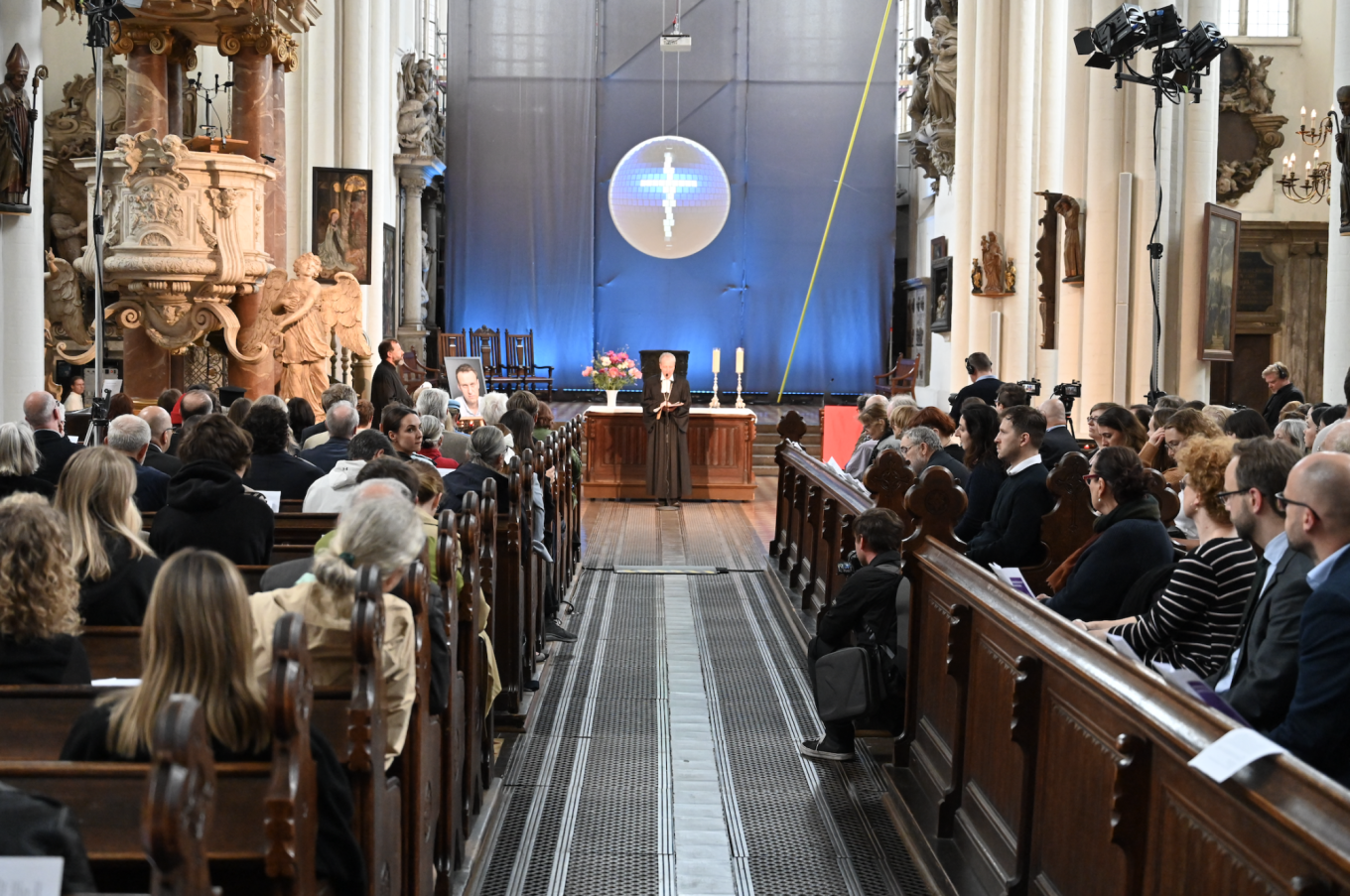
The municipality of The Hague rejected the request to rename the street last month, citing the renaming’s potential financial impact and the requirement that a person must have been deceased for at least 10 years before a street can be named after them. Hollmann said she has appealed the decision.
“He did too much to just let him disappear or to be forgotten, even outside of Russia,” Hollmann said.
Navalny died in February in the Arctic penal colony where he was serving a 19-year sentence on charges he and his supporters called politically motivated.
Prison authorities said he had lost consciousness after a walk and could not be revived by doctors.
He had been imprisoned since January 2021, when he returned to Russia after recovering abroad from a near-fatal poisoning with the nerve agent Novichok that he blamed on Putin — a claim the Kremlin denies.
While in prison, his groups were outlawed as “extremist,” forcing virtually all of his top allies to flee the country to avoid prosecution.
In the months leading up to his death, Navalny was repeatedly placed in solitary confinement and prison authorities allegedly withheld needed medical treatment.
Navalny’s death prompted widespread international condemnation and protests. Though Tuesday’s events were smaller than those protests, his supporters said they were committed to continuing to honor his memory no matter what.
“He meant a lot to us and it pains us to know that the Russian regime murdered him,” said Lev, 25, a native of Russia’s Far East Kamchatka region who attended the rally in Warsaw.
“He was the most famous Russian opposition leader of the past 20 years.”
A Message from The Moscow Times:
Dear readers,
We are facing unprecedented challenges. Russia's Prosecutor General's Office has designated The Moscow Times as an "undesirable" organization, criminalizing our work and putting our staff at risk of prosecution. This follows our earlier unjust labeling as a "foreign agent."
These actions are direct attempts to silence independent journalism in Russia. The authorities claim our work "discredits the decisions of the Russian leadership." We see things differently: we strive to provide accurate, unbiased reporting on Russia.
We, the journalists of The Moscow Times, refuse to be silenced. But to continue our work, we need your help.
Your support, no matter how small, makes a world of difference. If you can, please support us monthly starting from just $2. It's quick to set up, and every contribution makes a significant impact.
By supporting The Moscow Times, you're defending open, independent journalism in the face of repression. Thank you for standing with us.
Remind me later.




